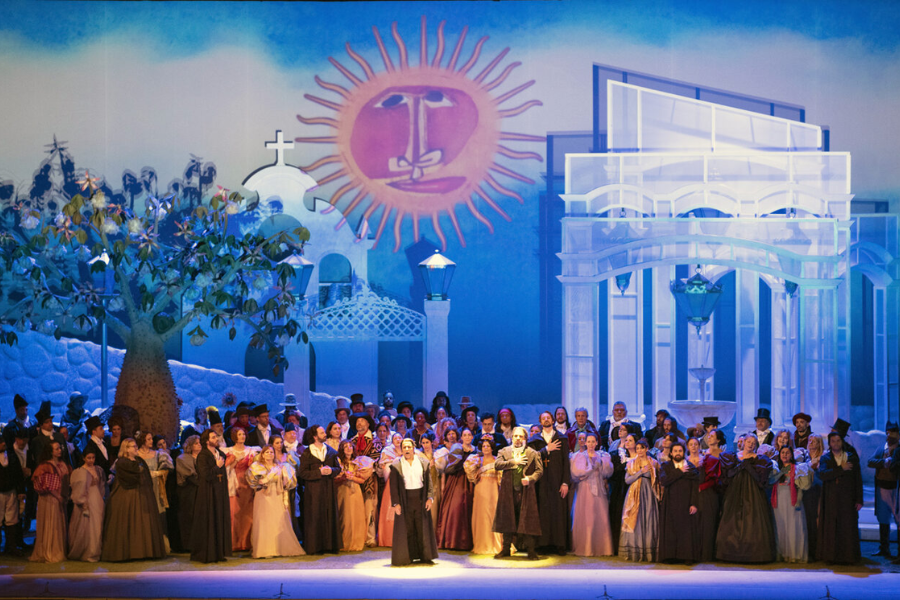CasasdeÔpera: El nuevo ciclo digital del Teatro Colón de Buenos Aires

El Teatro Colón de Buenos Aires invita a conocer CasasdeÔpera, un ciclo digital que propone una nueva forma de repensar la ópera. Producido durante los meses de cuarentena, desde las casas de los artistas. Músicos y cantantes demuestran su creatividad para resolver las necesidades de maquillaje, iluminación y escenografía con elementos de la vida cotidiana. Disfrútalo en la sección cultura en casa del sitio web del coliseo argentino.
CasasdeÔpera es un ciclo digital de alto impacto visual basado en piezas líricas breves creado y grabado íntegramente por artistas del Teatro Colón durante los meses de aislamiento social causado por la pandemia.
Dirigido por Mariana Ciolfi, CasasdeÔpera exhibe una estética innovadora que busca nuevos caminos para abordar el género operístico. Este enfoque se potencia a partir del trabajo artesanal realizado por los propios cantantes en sus hogares para resolver las necesidades de maquillaje, iluminación, vestuario, arte y cámara con objetos domésticos y una enorme dosis de creatividad.
El resultado es impactante por su calidad artística y técnica. Un producto con el sello de excelencia del Teatro Colón que abre una puerta a la experimentación de nuevas formas para la ópera poniendo las nuevas tecnologías al servicio de la expresión y el arte.
Conoce el ciclo CasasdeÔpera aquí
EL EQUIPO
Idea, guión y dirección: Mariana Ciolfi
Dirección musical: Marcelo Ayub
Diseño de arte vestuario y caracterización: Stella Maris Müller
Diseño de luces: Fabricio Ballarati
Cantantes: Lucía Alonso, Lautaro Chaparro, Rocío Fernández, Augusto Nureña Santi, Daniela Prado, Alejandro Spies, Pablo Urban
Piano: Iván Rutkauskas
Edición de sonido: Augusto Nureña Santi
Edición de video e identidad visual: Comunicación institucional Teatro Colón
Conoce la concepción del ciclo en siguiente documental.
SÍNTESIS PRIMEROS CAPÍTULOS
Danke (Gracias)
Esta canción alemana escrita por Martin Gotthard Schneider en 1961 es la que dio origen a CasasdeÔpera. Los artistas la eligieron porque fue el punto de partida y con la convicción de que todos tenemos mucho que agradecer, aunque el aislamiento por la pandemia haya resignificado muchas situaciones.
Lascia ch’io pianga (Deja que llore)
¿Quién no lloró alguna vez por algún motivo durante la cuarentena? El aria Lascia ch’io pianga, quizás el más famoso de Georg Friedrich Händel (1685-1759), contiene pocas palabras, pero su música es tan sublime que atraviesa el alma como pocas. El anhelo por librarse de las cadenas y abrazar la libertad presente en la ópera Rinaldo se resignifica en tiempos de pandemia.
Largo al factotum (Fígaro)
Las peluquerías siguen cerradas por la cuarentena y cada cual busca una solución a su manera. Largo al factotum es la cavatina que canta Fígaro en el primer acto de Il Barbiere di Siviglia, la ópera bufa de Gioacchino Rossini (1792-1868) que, con más de 200 años, sigue representando el cenit de la ópera cómica italiana.





